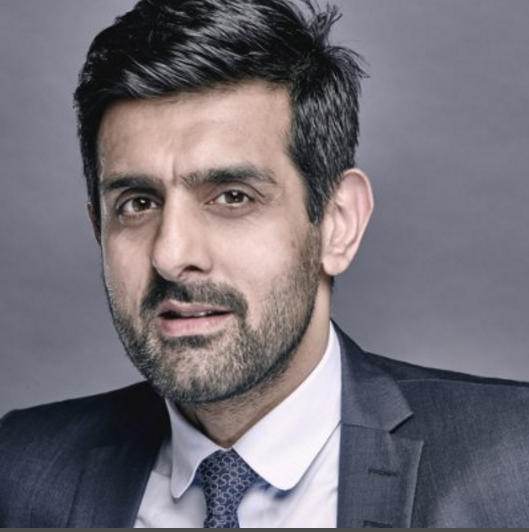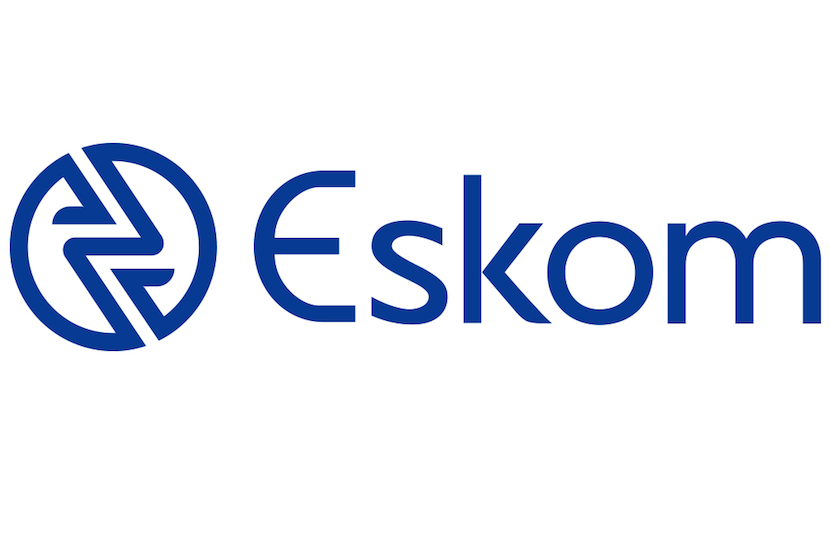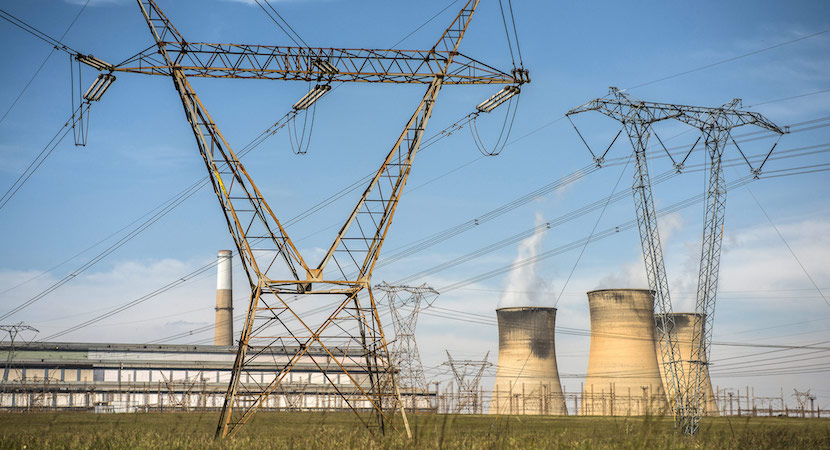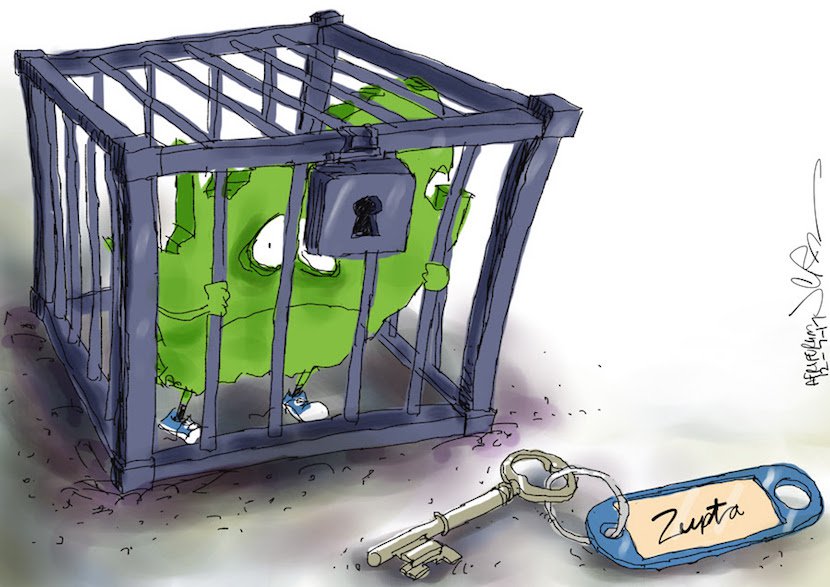Money lies revealed! Pressure grows on McKinsey over SA graft scandal.
This material belongs to: BIZ News.
EDINBURGH — Global consultancy McKinsey distanced itself from the Gupta-Zuma scandal that has erupted in South Africa, but there are fresh indications that it has generated huge sums on the back of corruption. This week, the opposition Democratic Alliance (DA) party highlighted the role of McKinsey in a massive R1,6bn lie involving power utility Eskom. Last month McKinsey said it had no reason to notify US authorities of its possible links to corrupt activities in a foreign jurisdiction. The DA has been aggressively pursuing global companies that have benefited from their role in graft involving President Jacob Zuma and his associates. Recently the DA won a victory against London-headquartered Bell Pottinger, a public relations firm that incited racial violence in order to further the interests of the Zuma-Gupta clique and was effectively paid from the proceeds of corruption. Bell Pottinger faces censure by a UK industry body in connection with its activities in South Africa. Now it looks like the DA is getting its proverbial teeth into McKinsey. – Jackie Cameron
Global consultancy McKinsey has passed the buck for financial irregularities involving Gupta family entities to its employee Vikas Sagar, effectively suggesting he was a maverick who acted alone in an isolated matter.

Evidence is growing that McKinsey has had more than a bit part in the state capture scandal that has engulfed South Africa and reaches to the highest echelons of government, public enterprises and business.
The Democratic Alliance (DA), an opposition party, issued a media release in which it noted a sudden U-turn by power utility Eskom after it initially claimed that the R1.6bn paid to the Gupta-linked Trillian and McKinsey was above board back in June this year”.
McKinsey bosses could easily find themselves being questioned in Parliament at an upcoming inquiry into corruption and state capture involving Eskom.
“The fact is that Eskom defended these payments and stated that everything was above board following an investigation by global consultancy, Oliver Wyman, in June,” said the DA.
“It has now been revealed that Oliver Wyman not only warned against the approval of these payments, but had actually red flagged these payments, stating that Eskom needed to conduct a legal review of all contracts.”
“The DA will write to the Acting Public Enterprises Committee Chairperson, Ms Zukiswa Ranthoto, to ask that she urgently ensure Eskom hands over the report by Oliver Wyman to Parliament for scrutiny. It is now apparent that Eskom procured the services of Oliver Wyman. Yet, when the advice was not in favour of the Guptas, they blatantly chose to ignore it,” said the DA.
“It is unacceptable that Eskom thought they could get away with this lie for so long.”
“The DA will ensure that all those responsible for this will be held to account at Parliament’s upcoming Eskom Inquiry,” added the DA.
There is an appetite in South Africa to see individuals brought to book in connection with Zuma-Gupta scandals that have played a role in putting a lid on economic and employment growth.
Said Callie Cilliers of the news on BizNews that McKinsey is caught up in a massive R1,6bn lie: “So sick and tired to read about this. When will we see people being arrested and charged with this looting?1”
BizNews visitor Bob agreed: “Someone, or perhaps the whole gang – top down – need to be arrested for this fraud, tried and jailed!”
In July McKinsey & Co indicated that it was reviewing hundreds of thousands of documents related any interactions with Trillian Capital Partners Ltd., a company linked to friends of President Zuma.
Eskom interim Chairman Zethembe Khoza said at the time that Trillian worked for McKinsey as a subcontractor, which McKinsey denies.
The investigation “involves a detailed review of our client interactions and work at Eskom since 2012 and interactions with supply-development partners over the past three years,” McKinsey told Bloomberg in an emailed response to questions. Law firm Norton Rose Fulbright has helping with the probe.

“The Guptas, who are in business with one of Zuma’s sons, have been at the center of allegations of so-called state capture and undue influence over government institutions. In November, South Africa’s anti-graft ombudsman published a report saying Zuma and some ministers may have breached the government’s code of ethics in their relationship with the family,” said Bloomberg.
A July report into allegations against Trillian by a leading advocate showed the company submitted an invoice for R30m to Eskom Chief Financial Officer Anoj Singh in April last year, which was paid the same day, noted the news service.
Salim Essa, a business associate of the Guptas, has sold his stake in Trillian, Bloomberg reported.
“McKinsey, which ended its work with Eskom by mutual agreement on July 10, said that all payments to Trillian were paid directly by the utility. The consultancy also hasn’t discovered anything that would require notification of U.S. authorities,” said Bloomberg.
Exposed! Jilted partner lifts lid on McKinsey R4bn BEE deal ‘sweeteners’
This material belongs to: BIZ News.
EDINBURGH — Global consultancy McKinsey is in the spotlight in connection with irregularities linked to South Africa’s Black Economic Empowerment (BEE) legislation. As the Trillian-Eskom scandal escalates, McKinsey is fighting allegations that it facilitated a sham contract with Gupta-linked Trillian. Meanwhile, a BizNews community member has come forward with more details on the way McKinsey works in South Africa after losing out as a McKinsey empowerment supplier. McKinsey has refused to divulge which supplier has won BEE business worth substantial sums. – Jackie Cameron
A South African businessman has laid criminal charges against global consulting firm McKinsey after losing out on lucrative work as its empowerment supplier.
Katiso Thamae, chief executive officer of South African management consulting firm Deep Dynamics, is puzzled about McKinsey’s secrecy over which company was awarded the work and accuses the company of deceiving him into believing his business was chosen as its partner.
The media spotlight has been on McKinsey over its role in facilitating the flow of Eskom funds to Gupta-linked entity Trillian in a contract that appears to be a sham.

The Gupta family is at the centre of a financial scandal in which it has used its power over President Jacob Zuma to access an estimated R100bn in state funds across a range of public entities. The Guptas are an immigrant Indian family whose bank accounts have been closed by a number of South African banks that have expressed concern about money laundering and other irregularities.
McKinsey has denied its involvement in Gupta-linked corruption and graft. It is running an internal investigation to probe the involvement of its South African staff with Gupta entities. It has suspended employee Vikas Sagar, who shared information directly with Gupta henchman Salim Essa.
Meanwhile, Thamae has asked police to investigate McKinsey in connection with possible fraud. He has laid charges with the SA Police Service and supplied detailed affadavits (shown to McKinsey) in which he accuses McKinsey of ‘deceiving’ his organisation in a costly tender process.
Companies like McKinsey are required to spend a percentage of their profits on local supplier development and must use “empowering suppliers”.
Thamae says in November, McKinsey verbally appointed his firm as a local empowerment partner that would help the global consultancy rapidly grow its South African business – but then inexplicably backtracked this year.
He would like to know which empowerment entity got the business, which he estimates is worth a very conservative R4bn over the next five years.
McKinsey has refused to tell Thamae which company has been appointed as its local empowerment partner. It also did not respond to this question, when BizNews contacted McKinsey global headquarters. McKinsey referred only to a “panel of suppliers”.
Deep Dynamics was shortlisted to provide consultancy support “to serve clients across a range of sectors”, says Thamae, who has provided extensive documentation on the matter.
“They appointed us on the 30th Nov 2016 but later declined. We spent lots of funds in preparation for this partnership,” he said.
Thamae estimates that “the forgone benefits, taking a very conservative approach” are a minimum of R4bn. “We are at liberty to accommodate a more accurate calculation of this opportunity cost which, we know, will far outpace R4 billion,” he added.
DJ Carella, Deputy Head of Media Relations at McKinsey & Company, Washington, DC, told BizNews: “To be clear, Deep Dynamics were never promised work and so we did not ‘change our minds’ about working with them.

“The company responded to an April 2016 Request for Information (RFI) in which McKinsey sought responses from small and medium enterprises (SMEs) and exempt micro enterprises (EMEs) consulting firms.”
“This RFI did not pertain to a specific project. Rather, the RFI was part of a rigorous process by which McKinsey selected a panel of potential Supplier Development Partners for future projects.”
“The company in question did not meet the criteria required and therefore was not one of the firms selected, and this was communicated directly to the company,” said Carella.
However, Carella did not explain why McKinsey shortlisted Thamae’s company and subsequently invited him to have detailed discussions with several senior McKinsey employees if it did not meet the required criteria. In addition, he did not confirm whether McKinsey was including this RFI in its probe of McKinsey irregularities in South Africa.
Thamae opened a case against McKinsey on 2 May at Park Road police station in Bloemfontein and was told the docket had been sent to the National Prosecuting Authority (NPA) on 30 May. He has not yet heard how the NPA plans to proceed with the matter.


